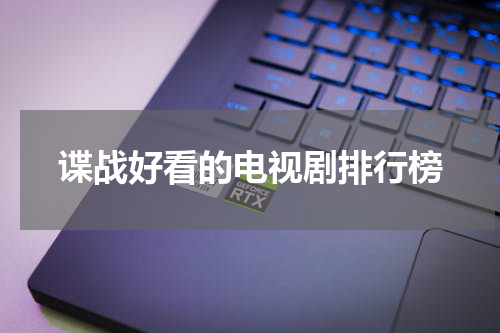本论文旨在探讨华为企业文化的特点、构建方式以及对于企业发展的影响。再次,以客户为中心的价值观使华为能够更好地满足客户的需求,取得竞争优势。

华为企业文化论文
摘要:华为是一家中国高科技企业,已成为全球最大的通信设备制造商之一。其成功的背后离不开其独特的企业文化。本论文旨在探讨华为企业文化的特点、构建方式以及对于企业发展的影响。
一、华为企业文化的特点 华为企业文化的特点主要包括执行力、创新性、学习型组织、团队合作、客户导向和价值观共享等。首先,华为强调执行力,注重员工执行力的培养,通过执行力来保证项目的顺利完成。其次,创新性是华为企业文化的核心,华为鼓励员工勇于创新,推动技术和业务的发展。第三,华为构建了学习型组织,注重员工的学习和发展,提供多元化的学习机会。第四,团队合作是华为企业文化的重要组成部分,华为注重员工之间的合作与协作,鼓励员工分享知识和资源。第五,华为以客户为中心,将客户的需求放在首位,为客户提供优质的产品和服务。最后,华为注重价值观共享,通过价值观共享来凝聚员工的力量,构建企业的核心竞争力。
二、华为企业文化的构建方式 华为企业文化的构建主要通过三个层次的努力:顶层设计、文化实践和价值观培养。首先,顶层设计是构建企业文化的基础,华为明确了企业的愿景、使命和核心价值观。其次,文化实践是将企业文化融入到日常工作中的重要手段,华为通过各种培训和学习机会,让员工深入理解并实践企业文化。最后,价值观培养是构建华为企业文化的关键,华为通过各种方式培养员工的价值观,使之与企业文化相契合。
三、华为企业文化对企业发展的影响 华为企业文化对企业发展具有积极的影响。首先,华为的执行力和创新性为企业的快速发展提供了坚实的基础。其次,学习型组织和团队合作促进了知识和经验的共享,提升了企业的竞争力。再次,以客户为中心的价值观使华为能够更好地满足客户的需求,取得竞争优势。最后,价值观共享凝聚了华为的员工,形成了强大的团队战斗力。
四、华为企业文化的启示 华为企业文化的成功经验对其他企业也具有一定的启示作用。首先,企业应明确自己的愿景、使命和核心价值观,作为企业文化的基础。其次,企业应注重员工的培养和发展,构建学习型组织。再次,团队合作和价值观共享是构建企业文化的重要组成部分,企业应重视员工之间的合作与交流。最后,企业应以客户为中心,关注客户需求,提供优质的产品和服务。
关键词:华为,企业文化,执行力,创新性,学习型组织,团队合作,客户导向,价值观共享
Abstract: Huawei is a Chinese high-tech company and has become one of the world's largest telecommunications equipment manufacturers. Its success is closely related to its unique corporate culture. This paper aims to explore the characteristics, construction methods, and impacts of Huawei's corporate culture on its development.
First, the characteristics of Huawei's corporate culture include execution, innovation, a learning organization, teamwork, customer orientation, and value sharing. Huawei emphasizes execution, cultivating employees' execution ability to ensure the smooth completion of projects. Innovation is the core of Huawei's corporate culture, and it encourages employees to innovate and promote technological and business development. Huawei has built a learning organization, focusing on employees' learning and development, providing diverse learning opportunities. Teamwork is an important part of Huawei's corporate culture, emphasizing cooperation and collaboration among employees and encouraging them to share knowledge and resources. Huawei puts customers at the center, prioritizing their needs and providing high-quality products and services. Lastly, Huawei values value sharing to unite employees and build the company's core competitiveness.
Second, Huawei's corporate culture is constructed through top-level design, cultural practice, and value cultivation. Top-level design is the foundation of building corporate culture, and Huawei clarifies its vision, mission, and core values. Cultural practice is an important means of integrating corporate culture into daily work, and Huawei provides various training and learning opportunities for employees to understand and practice corporate culture. Value cultivation is key to building Huawei's corporate culture, and Huawei uses various methods to cultivate employees' values to align with the corporate culture.
Third, Huawei's corporate culture has a positive impact on its development. Huawei's execution and innovation provide a solid foundation for rapid development. A learning organization and teamwork promote the sharing of knowledge and experience, enhancing the company's competitiveness. Customer-oriented values enable Huawei to better meet customer needs and gain a competitive advantage. Value sharing unifies Huawei's employees, creating a strong team.
Lastly, the successful experience of Huawei's corporate culture provides insights for other companies. Companies should clarify their vision, mission, and core values as the foundation of their corporate culture. They should focus on employee training and development to build learning organizations. Teamwork and value sharing are important components of corporate culture, and companies should prioritize cooperation and communication among employees. Finally, companies should prioritize customer needs and provide high-quality products and services.
Keywords: Huawei, corporate culture, execution, innovation, learning organization, teamwork, customer orientation, value sharing










